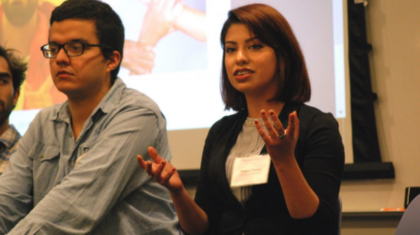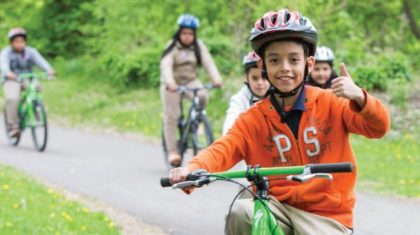#WalkBikeForward: Join us on our journey honoring key moments and people that have shaped our field as we celebrate 20 years of creating active, healthy communities.

Keith Benjamin is Community Partnerships Manager for the Safe Routes to School National Partnership. He serves on the National Capital Region Transportation Planning Board Citizens Advisory Committee.
Growing Diversity…Real Transformation
The biggest accomplishment of the movement is getting out of the mindset of just talking about bikes or walking and instead seeing how biking and walking can play a part in improving community.
Growing diversity in the movement has been an important part of this. More still needs to be done. But it is significant to hear more diverse voices — people from lower income communities, people of color, Indian reservations, people with disabilities. And more women too. We are now having broader conversations about what transportation should be.
Our biggest challenge is communities that are suffering from lack of opportunities to bike and walk. So I am energized when people who are being left out of safe, reliable transportation choices decide to do something about it. That’s when I feel like real transformation is taking place.
It’s important in our work to connect with all the people living in the community, letting them know “we see you” and paying attention to the reality of their experience. If we can address what they care about and need, it will become a strong alliance.
My wife and I moved to in the Anacostia neighborhood in DC, which has historically been cut off from the rest of the city. That makes me think about how we offer active transportation as an answer to the problems in these kinds of communities — how do you get to a grocery store that has fresh food, how to make the streets more safe from crime.
If we are really about creating healthy communities everywhere, then we need to lift up the organizations already existing in those communities — not just asking them to be on our board, but actively supporting the work they’re doing every day with resources and true buy-in. That allows us to broaden our work.


